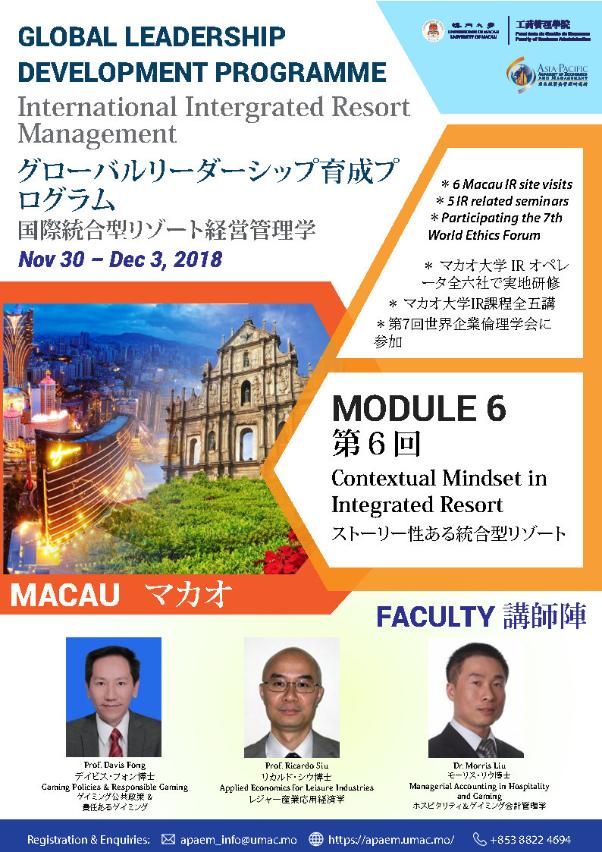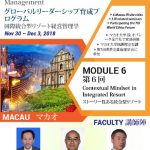 UM’s Global Leadership Development Programme is now open for enrolment
UM’s Global Leadership Development Programme is now open for enrolment
The sixth module of the Global Leadership Development Programme Series: International Integrated Resort Management, co-organised by the University of Macau’s (UM) Asia-Pacific Academy of Economics and Management (APAEM) and Faculty of Business Administration (FBA), is now open for enrolment. With a theme titled ‘Contextual Mindset in Integrated Resort’, the programme will take place in Macao from 30 November to 3 December. Davis Fong, director of UM’s Institute for the Study of Commercial Gaming, as well as associate professor Ricardo Siu and assistant professor Morris Liu from the FBA will be the keynote speakers. All are welcome.
The four-day module will be focused on the current development of integrated resorts in Japan. Participants will have the opportunity to learn theoretical knowledge about gaming and casino management, gaming law, gaming marketing, gaming mathematics, and international integrated resort management. In addition, participants can join the Seventh World Business Ethics Forum and visit integrated resorts and gaming companies in Macao to learn about their operation and management model.
This module is specially designed for senior executives working in international integrated resorts or the gaming industry, senior government officials, as well as scholars, researchers, senior consultants, and administrative personnel in related fields. Those who are interested should submit a completed enrolment form and required documents to the APAEM by 16 November. To learn more about the programme or to download the form, please visit the APAEM’s website at http://apaem.umac.mo/. For enquiries, please call 8822 4694 during office hours.


